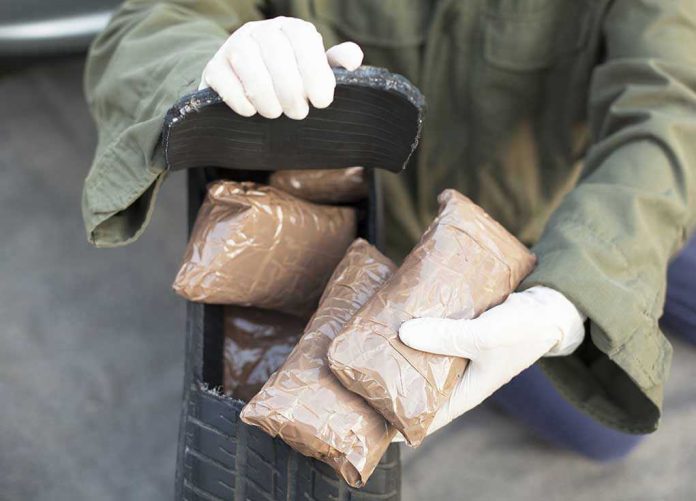
A second U.S. military strike on a Venezuelan boat underscores the escalating tensions in the Caribbean, raising concerns over potential broader conflict.
Story Snapshot
- U.S. military conducts second strike on Venezuelan boat linked to drug trafficking.
- Trump administration targets Tren de Aragua gang without public evidence.
- Venezuela accuses the U.S. of fabricating incidents and extrajudicial actions.
- Increased U.S. military presence in the Caribbean sparks regional tensions.
Escalation in the Caribbean
The United States has launched a second military strike on a Venezuelan boat within two weeks, claiming it was involved in transporting illicit drugs. This action is part of a broader military surge in the southern Caribbean, with U.S. naval, air, and ground forces reinforcing their presence. The Trump administration alleges that the vessels were operated by the Tren de Aragua gang, a criminal organization with suspected drug trafficking ties. However, no public evidence has been provided to substantiate these claims.
Despite the administration’s assertions, Venezuela’s government has vehemently denied the occurrence of these strikes, labeling them as fabrications. President Nicolás Maduro’s regime accuses the U.S. of engaging in extrajudicial killings and threatens regime change in Caracas. This marks a significant escalation in the already tense U.S.-Venezuela relations, which have been strained for decades over issues like drug trafficking and sanctions.
Military Might and Diplomatic Strain
The recent strikes indicate a shift in U.S. policy towards more direct military intervention against alleged non-state actors in Venezuelan waters. President Trump has taken to social media, issuing public threats to those involved in drug trafficking, signaling a more aggressive stance in combating narcotics entering the United States. These operations have been supported by the deployment of advanced military assets such as F-35 fighters to Puerto Rico and U.S. Navy destroyers in the region.
In response, Venezuela has increased its troop deployments along its coastal states, heightening the risk of military confrontation. The Venezuelan government criticizes these U.S. actions as illegal and a violation of their sovereignty. This standoff has not only strained diplomatic relations but also raised concerns about potential civilian casualties and the destabilization of regional security.
Impact and Global Reactions
The consequences of these strikes are far-reaching. In the short term, there’s an increased risk of military escalation and diplomatic fallout. Long-term implications could include a broader conflict, further destabilization of the region, and setting a precedent for extraterritorial military actions against non-state actors. These developments have disrupted local communities in Venezuelan coastal areas, impacting fishing and maritime commerce.
The international community remains divided on these actions. While the U.S. portrays its strikes as necessary to protect American lives from the scourge of drug trafficking, Venezuelan officials and some international observers perceive them as an overreach of military power and a breach of international law. Legal scholars have questioned the justification for such lethal force, highlighting the lack of evidence of an imminent threat.
Sources:
Wikipedia, “2025 United States strike on Venezuelan boat”














